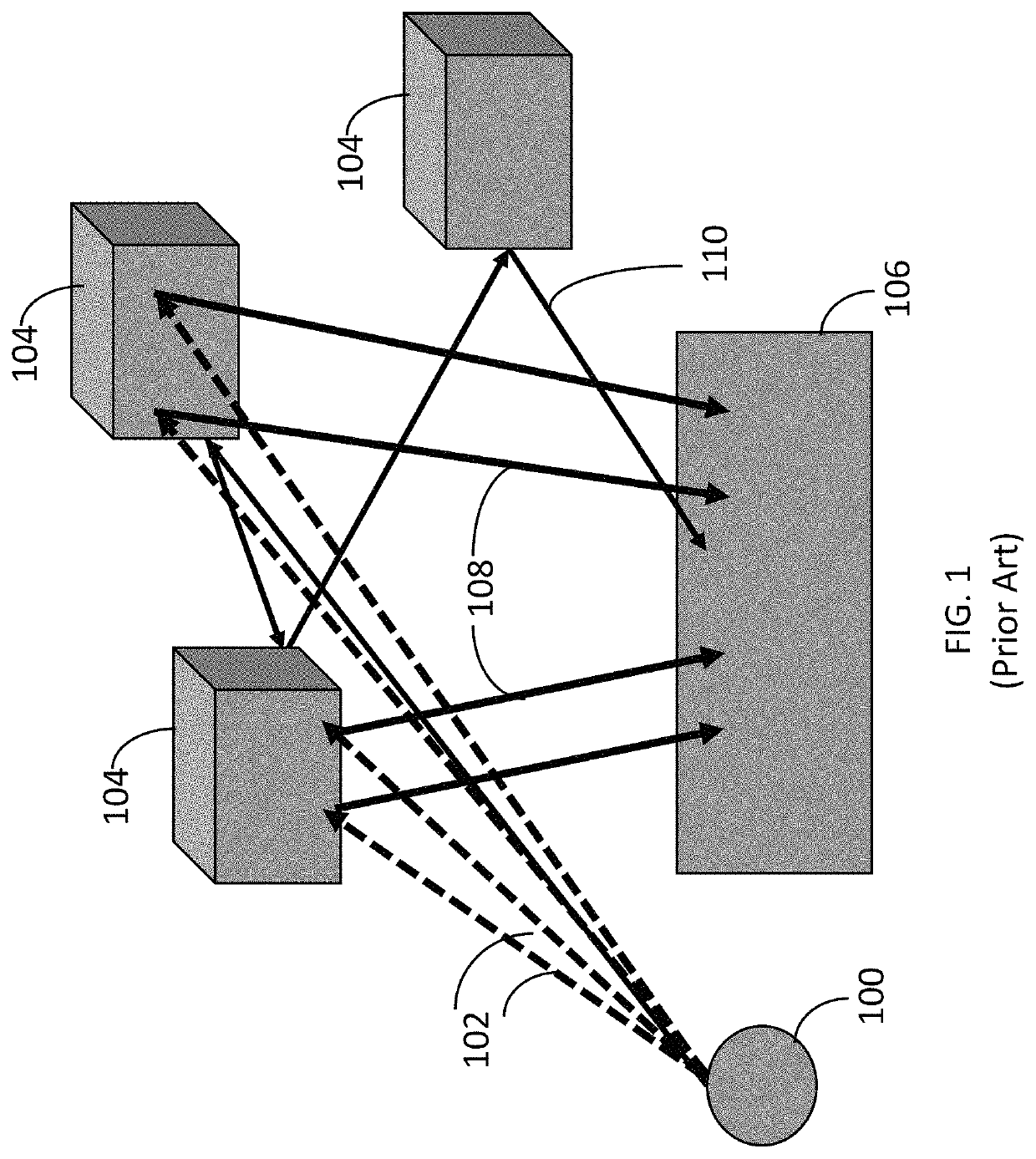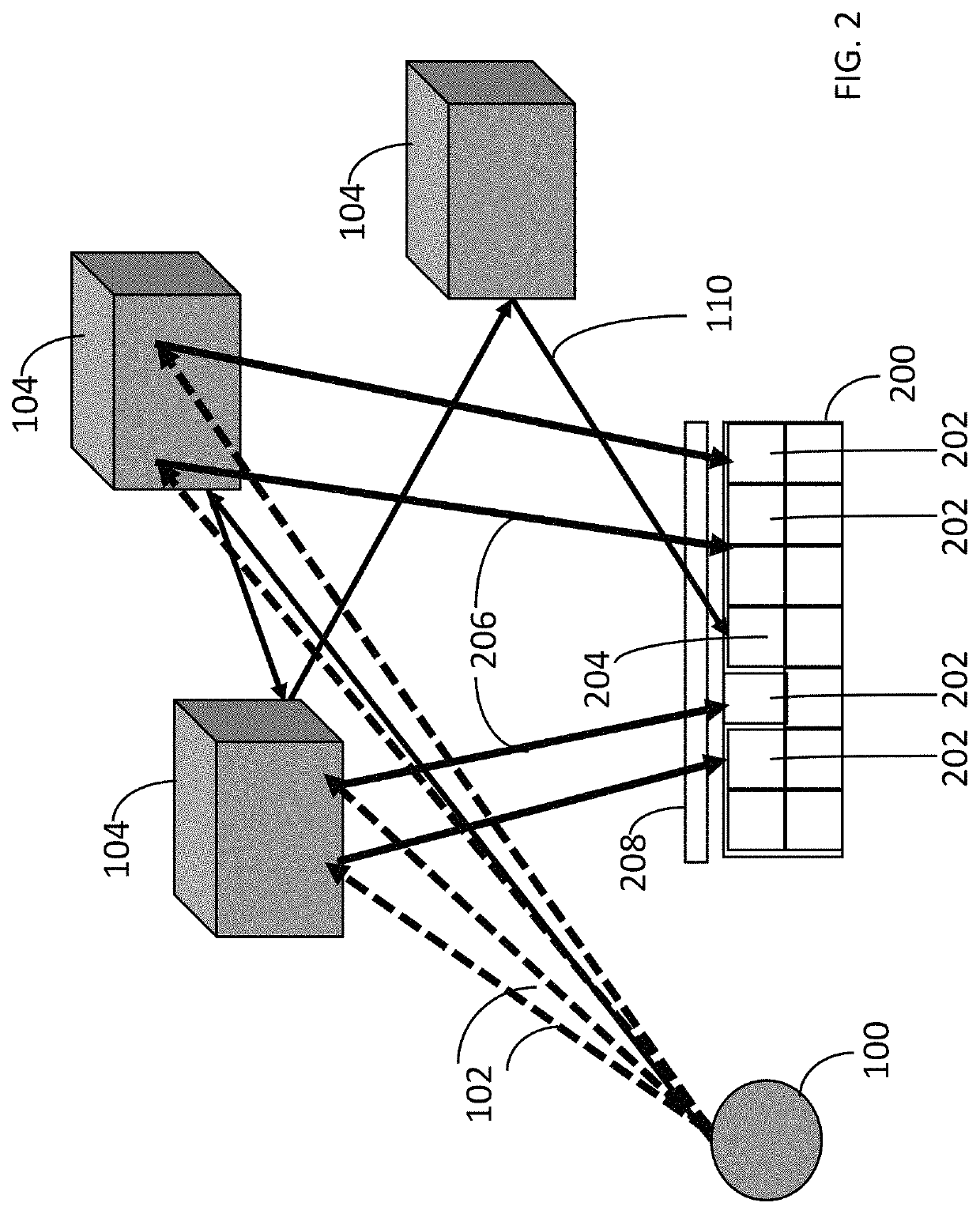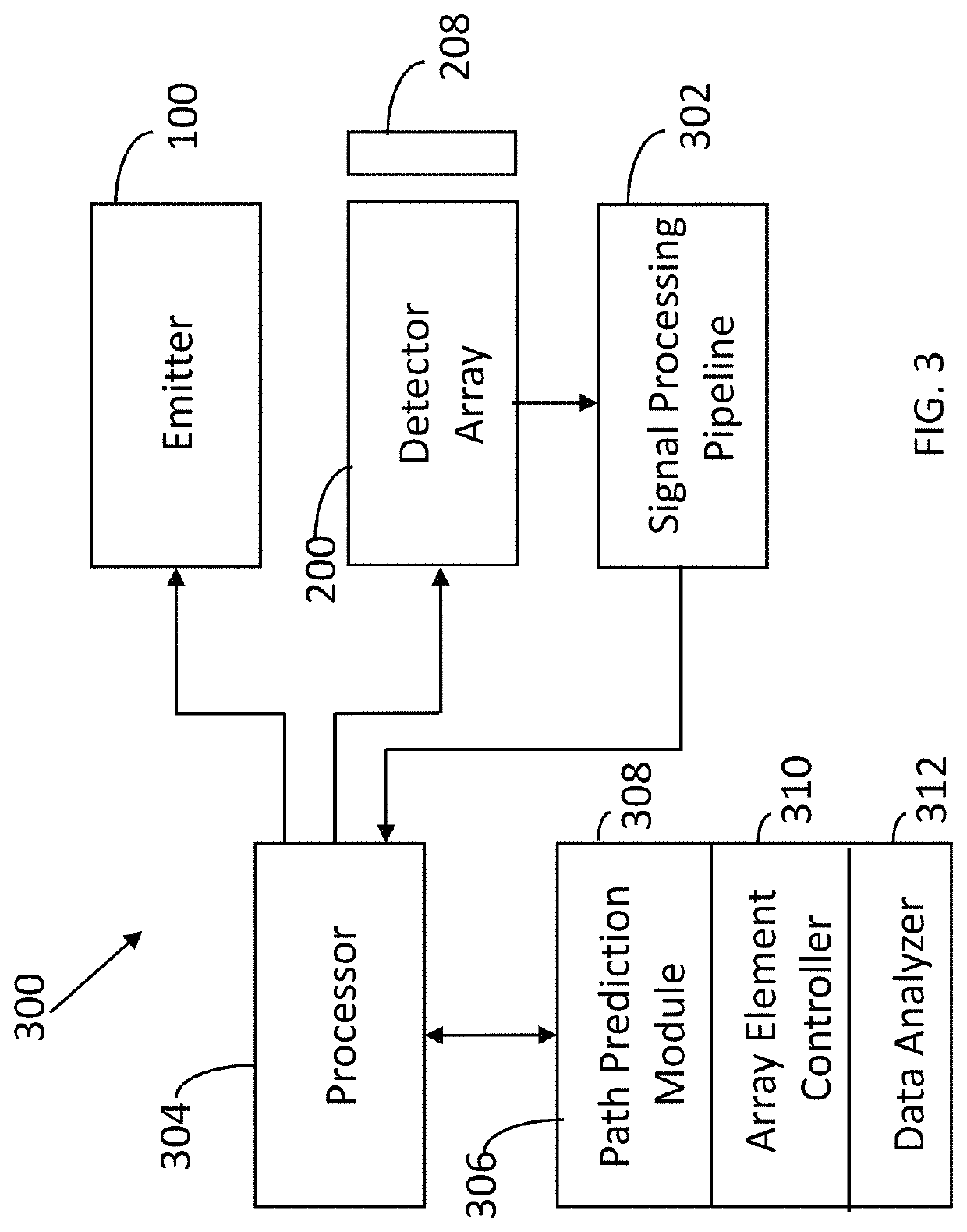Apparatus and method for selective disabling of LiDAR detector array elements
a detector array and selective disassembly technology, applied in the field of optical signal processing, can solve the problems of requiring precise alignment, mechanical parts that are prone to failure, and cannot isolate multi-path reflections, and the detection resolution is limited to the array resolution
- Summary
- Abstract
- Description
- Claims
- Application Information
AI Technical Summary
Benefits of technology
Problems solved by technology
Method used
Image
Examples
Embodiment Construction
[0017]FIG. 2 illustrates a LiDAR detector array 200 configured in accordance with an embodiment of the invention. The LiDAR detector array 200 includes individual elements 202 that are selectively enabled to collect expected return signals 206 and individual elements 204 that are disabled if they are in a position that does not correspond to an expected return path. Thus, in this example, element 204 is disabled and therefore does not process multi-path interference signal 110. The detector array 200 may have an associated optical system 208 to focus optical energy on the detector array 200. In one embodiment, the optical system 208 includes individually addressable optical elements to focus or defocus optical energy onto the detector array to improve signal-to-noise ratio.
[0018]FIG. 3 illustrates a system 300 with electronic components to implement an embodiment of the invention. The system 300 includes the emitter 100, detector array 200 and optical system 208. Signals from the de...
PUM
 Login to View More
Login to View More Abstract
Description
Claims
Application Information
 Login to View More
Login to View More - R&D
- Intellectual Property
- Life Sciences
- Materials
- Tech Scout
- Unparalleled Data Quality
- Higher Quality Content
- 60% Fewer Hallucinations
Browse by: Latest US Patents, China's latest patents, Technical Efficacy Thesaurus, Application Domain, Technology Topic, Popular Technical Reports.
© 2025 PatSnap. All rights reserved.Legal|Privacy policy|Modern Slavery Act Transparency Statement|Sitemap|About US| Contact US: help@patsnap.com



